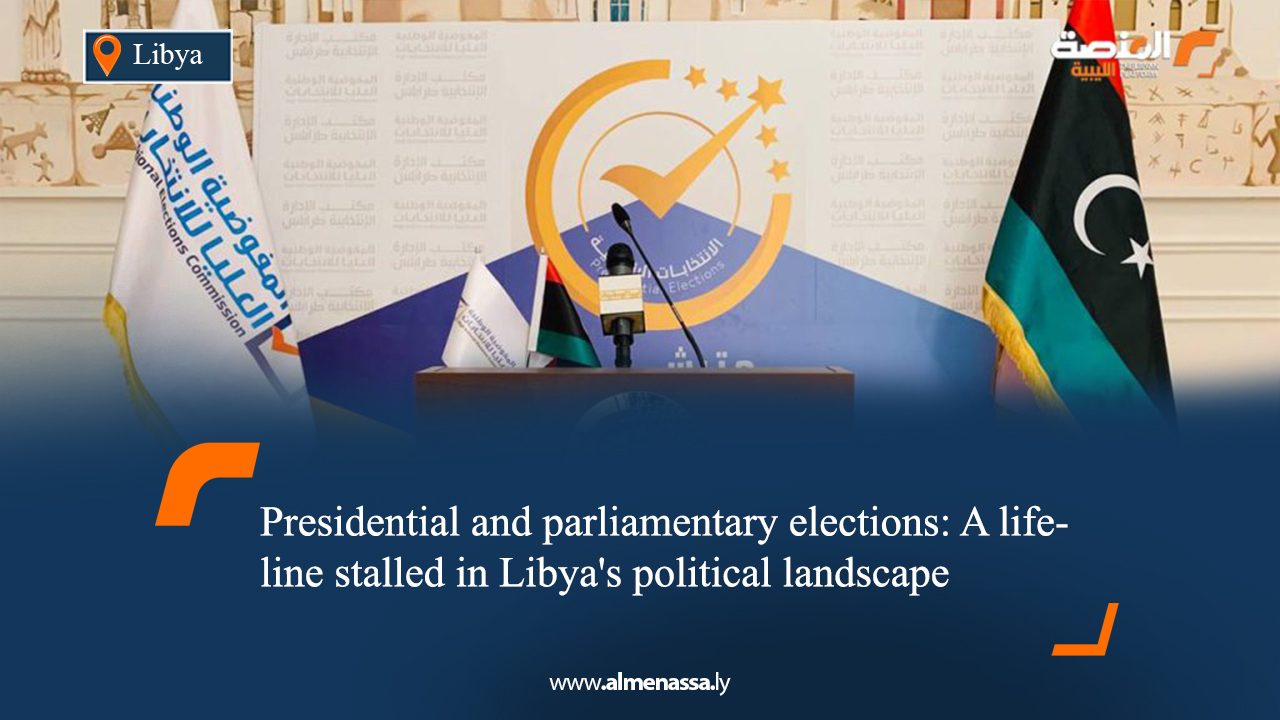Presidential and parliamentary elections remain an elusive dream in Libya, amidst various attempts to hold them, some appearing serious, while others garner little traction.
Advisory Committee: An attempt to break the stalemate
The latest efforts to revive the stagnant election file came through the final report presented by the Advisory Committee of the United Nations Support Mission in Libya (UNSMIL). The report put forward technical and political options aimed at “breaking the chronic political deadlock” hindering the conduct of national elections and ending the transitional phase in the country.
UNSMIL had formed this committee, comprising 20 prominent Libyan figures representing diverse regions and backgrounds. The committee was tasked with proposing practical solutions to address contentious issues. It held over 20 meetings across three months, focusing its work on evaluating the constitutional and legal framework governing the electoral process in Libya.
Contentious issues and proposed solutions
The Advisory Committee identified key contentious issues within the current electoral framework and proposed recommendations and options to address them. Among the suggested solutions are separating the results of parliamentary and presidential elections and severing any link between them. It also proposed holding presidential and parliamentary elections sequentially, within a strict and defined timeframe, to resolve the political and logistical problems arising from holding them on a single day.
Furthermore, the committee put forth solutions concerning candidacy requirements and conditions for a second election round. It recommended increasing women’s representation to 30% in both the Senate and the House of Representatives. It also stressed the necessity of ensuring fair and proportional representation for cultural components, at least 15% in the Senate, among other recommendations.
The committee presented four options for a potential roadmap to end the transitional period: first, holding simultaneous presidential and legislative elections; second, holding parliamentary elections first, followed by the adoption of a permanent constitution; third, adopting a permanent constitution before elections; fourth, establishing a political dialogue committee based on the political agreement to finalise electoral laws, the executive authority, and a permanent constitution.
Electoral laws: dispute over powers
The Advisory Committee’s recommendations could represent a real turning point towards holding elections, especially after the House of Representatives announced in October 2023 that its members had unanimously voted to issue parliamentary and presidential election laws, prepared by the (6+6) Committee. House Speaker Aguila Saleh affirmed that the electoral laws had already been adopted by the (6+6) Committee, and that the House had no right to amend or object to them according to the constitutional amendment. He also noted that the laws did not exclude anyone who met the candidacy requirements.
The government and the election path
On May 20, the House of Representatives session concluded with the formation of a government whose primary mission is to conduct presidential and parliamentary elections. This direction is rejected by Abdul Hamid Dabaiba, head of the Government of National Unity (GNU), who calls for an immediate move towards general elections and rejects what he described as “creating new transitional phases” aimed at extending the mandate of current institutions. Dabaiba stressed that the GNU would only hand over power to an entity elected by the Libyan people.
It can be argued that the core of Libya’s election crisis lies in the proliferation of political bodies, their lack of harmony, and their mutual non-recognition. Added to this is the fear of holding elections without recognising their results, because the acceptance of results is the true measure of success. This became clearly evident in 2021 when Emad al-Sayeh, head of the High National Elections Commission, announced that security, judicial, and political obstacles constituted “force majeure” preventing elections from being held on their scheduled date of December 24, 2021.
Despite the difficulties and challenges, presidential and parliamentary elections remain the sole lifeline that can rescue Libya, which has faltered due to the prolonged stay of the same political bodies in power, thereby eroding their legitimacy in one way or another.


